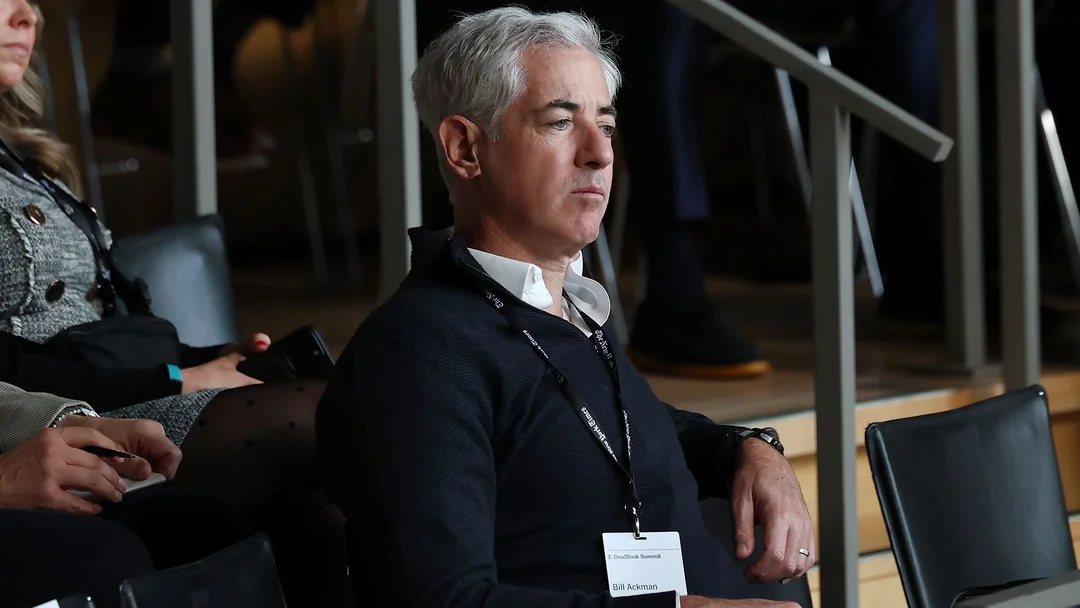
Wall Street Billionaires Clash With Trump’s Tariff Strategy Amid Tumultuous Markets
Wall Street has been thrown into upheaval following President Donald Trump’s sweeping tariffs, sparking rare and vocal dissent from some of his biggest billionaire supporters and causing wild swings across the global stock markets. The intensifying trade war, with nations retaliating in kind, has placed the American economy in a precarious position, highlighting deep divisions about the future of U.S. economic policy.

In recent days, billionaire investors unaccustomed to being sidelined have mounted a concerted effort to persuade the President to pull back from ever-tougher tariffs, fearing disastrous ripple effects on the economy. Despite private meetings brokered with Commerce Secretary Howard Lutnick and direct calls to White House aides like Susie Wiles and Treasury Secretary Scott Bessent, their urgings initially fell on deaf ears.
On social media, hedge fund titan Bill Ackman voiced the alarm early Monday, warning, “The global economy is being taken down because of bad math,” and calling for a course correction by April 9 before, in his words, "the President makes a big mistake." Ackman later elaborated that without immediate relief, "many small businesses will go bankrupt," warning of cascading damage extending to mid-sized firms.
The president’s billionaire donor base was unusually united in dissent. Tesla’s Elon Musk, who previously served as a senior adviser, publicly lambasted Trump’s trade adviser Peter Navarro as "truly a moron" for his tariff push, advocating instead for a "zero-tariff" environment between the U.S. and allies. Citadel founder Ken Griffin bluntly called the move a “huge policy mistake,” while legendary fund manager Stanley Druckenmiller warned tariffs exceeding 10% were perilous.
As financial markets tumbled—nearly 18% lower since recent peaks for the S&P 500—global counterparts like Germany, Canada, and Japan faced similar or sharper declines, underscoring how interconnected economies absorb tariff shocks. Meanwhile, China retaliated forcefully by jacking up tariffs to 84%, prompting Trump to amplify duties further to an eye-watering 125% in an escalating tit-for-tat.

Amidst mounting pressure and wild market drops, Trump made a partial concession late Wednesday, authorizing a 90-day pause on reciprocal tariffs for most countries, though stiff levies against China remain untouched. Ackman hailed the move as “brilliantly executed” and a classic Trump “Art of the Deal” tactic to distinguish friend from foe and reset the negotiation table.

Still, the damage to American businesses is already surfacing. Ackman revealed how a small cold brew coffee company he invested in expects costs for glass bottles from China to soar 50%, chai tea from India by 26%, and coffee imports by 10%, straining their ability to pass costs onto customers or absorb losses without laying off staff.
The broader debate now hinges on whether these aggressive tariffs, against a backdrop of billionaire rebellion and volatile markets, will coerce trading partners towards fairer deals or inflict lasting wounds on the U.S. economy. While Trump frames the pressure campaign as a strategic masterstroke, the pushback from his allies reveals genuine concerns over its economic fallout.
This high-stakes standoff raises fundamental questions: Can a confrontational tariff strategy yield better global trade terms without upending domestic stability? Or will the costs outweigh the gains? Readers — what’s your perspective on America’s tariff gamble? Share your thoughts below.
Related issues news
Can tariffs cause recession?
Trump tariffs risk higher prices and make US recession more likely, says JP Morgan boss. The JP Morgan chief executive, Jamie Dimon, has warned that it may be “hard to reverse” the effect of Donald Trump's tariffs, which he said would drive prices higher and make a US recession more likely.
What is Trump?
Donald John Trump (born June 14, 1946) is an American politician, media personality, and businessman who is the 47th president of the United States. A member of the Republican Party, he served as the 45th president from 2017 to 2021. Donald Trump.
What is the Trump trade war?
An economic conflict between China and the United States has been ongoing since January 2018, when U.S. President Donald Trump began setting tariffs and other trade barriers on China with the goal of forcing it to make changes to what the U.S. says are longstanding unfair trade practices and intellectual property theft ...
What is anti-Trump?
The Never Trump movement (also called the #nevertrump, Stop Trump, anti-Trump, or Dump Trump movement) is a conservative political movement that opposes Trumpism and U.S. president Donald Trump, and in general supports a return to a more rules-based internationalist, norm-following, ideologically conservative-oriented ...